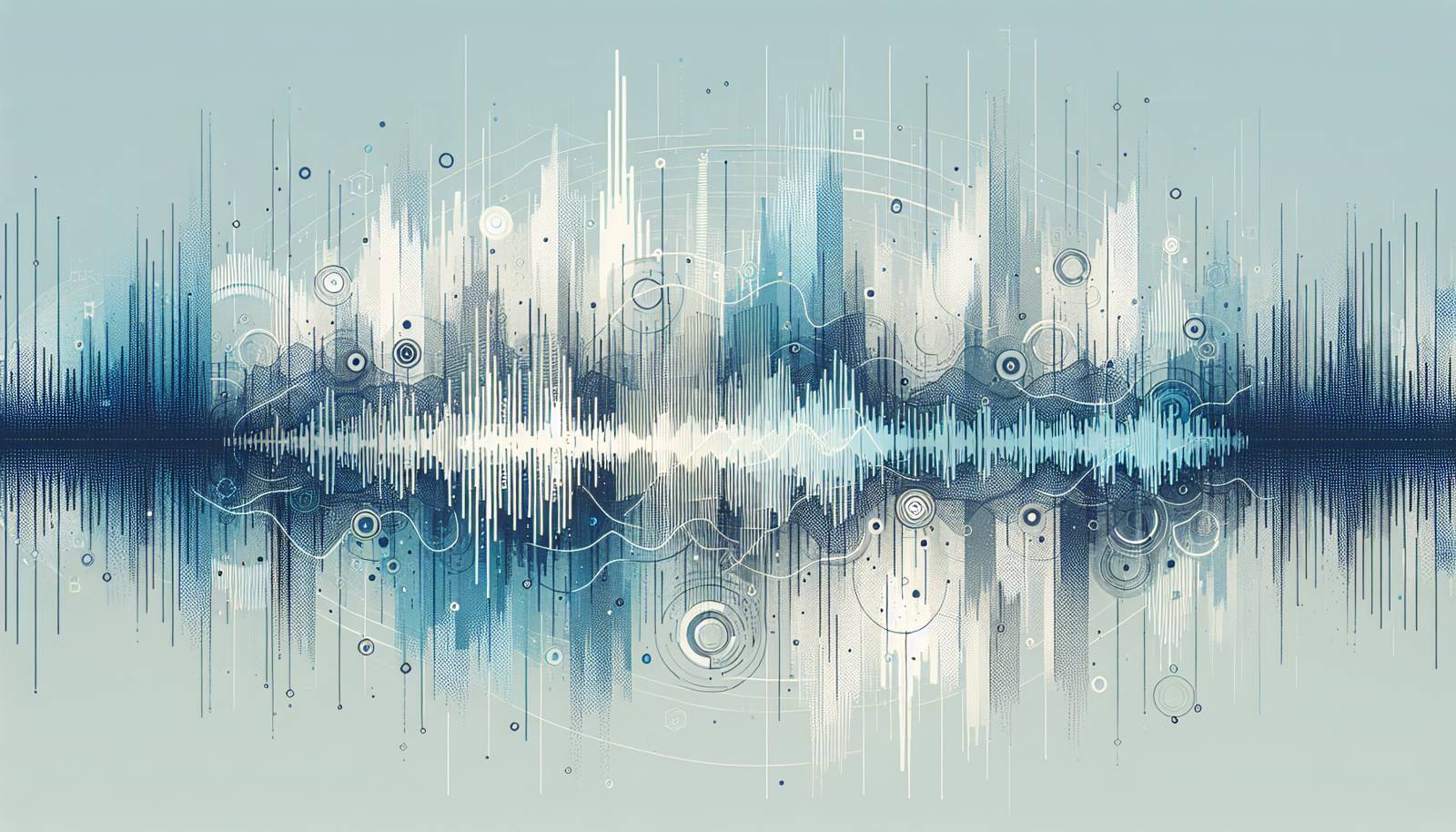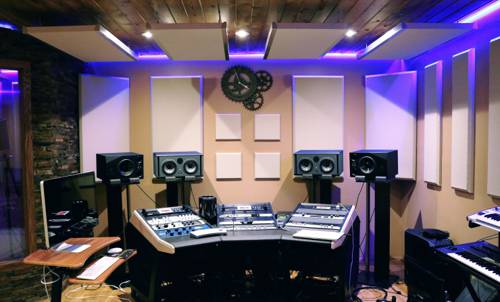
FAQ About The Impact of Digital Age on Music Production

How has digital technology changed the music production process?
Digital technology has revolutionized music production by making high-quality recording and editing tools accessible to a wider range of people. With digital audio workstations (DAWs) like Ableton Live, Pro Tools, and FL Studio, artists can produce music from their home studios with features equivalent to professional studios. This technology allows for precise editing, a wide array of audio effects, and virtual instruments, significantly reducing production costs and time.

What are Digital Audio Workstations (DAWs) and why are they important in music production?
Digital Audio Workstations (DAWs) are software platforms used for recording, editing, mixing, and producing audio files. They are crucial in modern music production, as they provide musicians with the tools to create music tracks digitally. DAWs offer features such as multi-track recording, a variety of audio effects, MIDI capabilities, and integration with hardware instruments. This versatility enables music producers to experiment with sounds and ideas easily and efficiently.

How has digital technology affected music distribution?
Digital technology has greatly transformed music distribution by moving away from physical formats to digital ones. Platforms like Spotify, Apple Music, and Bandcamp allow artists to release their music directly to listeners worldwide without the need for physical distribution channels. This shift has lowered barriers to entry, enabling independent artists to reach global audiences more efficiently and economically. It has also changed the revenue model in the music industry, with streaming becoming a major income source.

What role do streaming platforms play in the digital age of music?
Streaming platforms have become central in the digital age of music by providing instant access to vast libraries of songs for consumers. They have changed the way listeners discover and consume music, often using algorithms to suggest new tracks based on user preferences. For artists, these platforms offer crucial visibility and a means to share their work globally. However, they also raise discussions about fair compensation, as streaming pays artists differently compared to traditional album sales.

How has digital technology impacted music consumption habits?
Digital technology has drastically altered music consumption habits by making it possible to access music anytime and anywhere through mobile devices and internet connectivity. This convenience has led to an increase in music consumption, personalized playlists, and on-demand access. The shift has also encouraged practices like streaming instead of purchasing albums, leading to a broader exploration of genres and artists by consumers.

What are some cultural implications of digital technology in music?
The cultural implications of digital technology in music are profound, affecting both how music is created and experienced. It has democratized music production and distribution, allowing a more diverse range of voices to be heard. Culturally, there's an increase in genre blending and innovation, leading to new musical styles. Additionally, technology has facilitated global cultural exchanges, enabling cross-cultural collaborations between artists across the world.

How has social media affected music promotion in the digital age?
Social media has become an essential tool for music promotion, allowing artists to reach and engage with their audience directly. Platforms like Instagram, TikTok, and Twitter enable artists to market their music, share content, and build a personal brand without the need for traditional media channels. Social media allows for viral trends which can catapult songs into mainstream popularity, as seen with TikTok challenges.

Can digital technologies contribute to the quality of music produced today?
Yes, digital technologies contribute significantly to the quality of music produced today by offering precision, flexibility, and an expanded range of tools for producers and artists. With advancements in software and hardware, artists can refine their sound with higher fidelity and incorporate a broader spectrum of effects and virtual instruments. Additionally, digital technology facilitates easier experimentation with sound, which can result in more innovative music productions.

What are common misconceptions about digital music production?
A common misconception about digital music production is that it reduces the need for musical talent. While technology can enhance music creation, it still requires creativity, skill, and musical understanding to produce quality work. Another misconception is that digital music production is always easier or quicker than traditional methods; in reality, mastering digital tools can take significant time and learning.

How does digital technology affect the environmental footprint of music production?
The shift to digital technology in music production has both reduced and introduced environmental impacts. Traditional physical media production involves materials and transportation, whereas digital distribution minimizes physical waste and emissions. However, data centers that store and stream digital music require substantial energy resources. Therefore, the environmental impact of digital music consumption is focused on energy use for server operations rather than manufacturing and transport.

What is the impact of artificial intelligence on music production?
Artificial intelligence has started to play a significant role in music production by assisting in tasks such as composing, mastering, and producing music tracks. AI tools can analyze musical patterns to help musicians generate new ideas and melodies or automate routine tasks to speed up the production process. While AI cannot replace human creativity, it offers powerful assistance in enhancing musical innovation and widening creative possibilities.

How has digital technology facilitated remote music collaboration?
Digital technology has made remote music collaboration much more accessible by providing tools like cloud-based DAWs, collaboration platforms, and communication software like Zoom or Slack. Artists can now collaborate without geographic constraints, enabling international partnerships and cross-cultural projects. This capability not only expands creative possibilities but also allows music projects to progress regardless of physical limitations.

What are the economic implications of digital music production and distribution?
Digital music production and distribution have significantly altered the economics of the music industry. While they have reduced costs for production and eliminated barriers for entry into the market, they also pose challenges in revenue distribution. Artists now earn differently, with income increasingly reliant on streams rather than album sales, affecting smaller artists disproportionately. However, global reach offers new monetization opportunities like merchandising and live streaming events.

How has digital remix culture evolved in the digital age?
Digital remix culture has flourished in the digital age due to the accessibility of both music software and published tracks online. Platforms such as SoundCloud and YouTube allow producers to remix and share their works widely, fostering creativity and new interpretations of existing music. This culture not only highlights artistic versatility but also encourages the innovative use of existing music, often leading to official remixes and collaborations with original artists.

How do virtual instruments work in the context of digital music production?
Virtual instruments are software-based solutions that simulate the sound of traditional instruments or create entirely new sounds. They are used within DAWs to produce music without the need for physical instruments. These instruments offer vast libraries of sounds and the ability to modify parameters, allowing for highly customized soundscapes. Virtual instruments are essential for producers looking to experiment and innovate with different genres and styles.

What challenges do artists face with digital music distribution?
While digital music distribution offers broader access, it also presents challenges such as market saturation and intense competition for listener attention. Additionally, artists face issues related to fair compensation, as streaming platforms may pay less per play compared to traditional sales. Navigating the digital landscape requires artists to manage both creative and marketing efforts to stand out and effectively monetize their work.

How has digital music impacted traditional music labels?
Digital music has significantly impacted traditional music labels by shifting the power dynamics between artists and labels. While labels were once necessary for production, distribution, and promotion, artists can now independently manage these through digital platforms. This shift has led labels to adapt by offering more services such as brand development and digital marketing, and focusing on large-scale promotions and administrative support for artists who achieve grassroots success.

What is the role of blockchain technology in the music industry?
Blockchain technology is emerging as a tool to create more transparent and fair mechanisms for music distribution and payment. It can enable decentralized platforms that facilitate direct transactions between artists and fans, potentially increasing artists' revenues and giving them greater control over their work. Additionally, blockchain can aid in creating detailed and immutable records for rights management, ensuring fair royalty distribution across multiple parties.

How has the emergence of digital tools influenced music education?
Digital tools have transformed music education by providing interactive and accessible learning platforms. Students can access tutorials, online courses, and virtual instruments to enhance their learning experiences. Digital technology has enabled more personalized and flexible learning opportunities, empowering aspiring musicians to refine their skills independently while offering them tools to engage with a broader musical community online.

How are traditional musicians adapting to the digital age?
Traditional musicians are adapting to the digital age by incorporating technology into their practices and exploring new distribution channels. Many are learning to use DAWs and social media to enhance their creative and promotional efforts. Additionally, traditional musicians might engage in online collaborations and live performances to reach wider audiences and employ digital tools to preserve and innovate within their cultural heritage.
